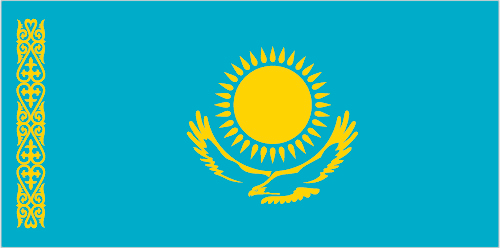The Volokh Conspiracy
Mostly law professors | Sometimes contrarian | Often libertarian | Always independent
Kazakhstan can't use U.S. courts to block Kazakh news site's publication of allegedly stolen Kazakh government documents

From Kazakhstan v. Does, decided Tuesday by a federal district court in New York:
On March 20, 2015, this Court issued a preliminary injunction … in favor of Plaintiff, the Republic of Kazakhstan, enjoining the Doe defendants, their affiliates and all persons acting in concert with them, from using, disclosing or otherwise disseminating e-mails and other documents allegedly obtained illegally by hacking Kazakhstan government computers (the "Stolen Materials"). Non-party Respublika, an online Kazakhstan newspaper … now move[s] for clarification that the Injunction does not apply to it. For the reasons set forth below, the Court finds that the Injunction does not apply to Respublika. …
[Kazakhstan's] Complaint alleges that on January 15, 2015, Plaintiff learned that its computers had been hacked when it became aware that certain of its sensitive, proprietary documents and confidential emails, including emails protected by the attorney-client privilege, were publicly posted on the internet. Among the officials whose emails and other documents were misappropriated were the Executive Secretary of the Ministry of Justice of Kazakhstan and a Deputy General Prosecutor in the country's General Prosecutor's Office. Although Plaintiff launched an investigation to determine the identity of the hackers and the scope of the breach, it is still unaware of their identity and brought the instant action against the defendants as John Does 1-100. …
On August 4, 2015, Respublika filed the instant motion seeking clarification. Respublika does not dispute that it has posted or used at least some of the purportedly Stolen Materials on its website. However, it claims that the injunction cannot apply to it because there is no allegation, or proof, that Respublika was involved with the hacking, or otherwise assisted or acted in concert with the hackers, and because the Injunction operates as an unconstitutional prior restraint against Respublika. …
[F]or Kazakhstan to prevail on the merits, it must prove that Respublika itself violated the [Computer Fraud & Abuse Act] or was complicit in the alleged hacking. Kazakhstan, as it itself concedes, does not have sufficient evidence to indicate that Respublika was in any way responsible for the alleged hacking or acted in concert with the hackers. Indeed, the very purpose of Plaintiff's motion for expedited discovery is to enable it to make such a showing.
The fact that Respublika may have used or posted certain of the Stolen Materials on its website, is not, without more, sufficient to subject it to the Injunction. The First Amendment grants persons a near absolute right to publish truthful information about matters of public interest that they lawfully acquire. See Smith v. Daily Mail Publishing Co., 443 U.S. 97, 103 (1979). The Supreme Court affirmed that the Daily Mail rule applies even if a re-publisher of information that is of public concern knew that its source had obtained the information illegally. See Bartnicki v. Vopper, 532 U.S. 514, 535 (2001). Thus, the Daily Mail rule protects the publication of the … documents by anyone other than those directly involved in their purported theft. …
The court also finds that applying the Injunction against Respublika would result in a prior restraint of speech. A prior restraint is an administrative or judicial order "forbidding certain communications when issued in advance of the time that such communications are to occur," in contrast to orders imposing liability for speech after publication. The Injunction entered in this case operates as a prior restraint when applied to Respublika because it enjoins Respublika from "using, disclosing … hosting, copying … providing access to or making available to anyone, in any manner whatsoever the Stolen Materials." That is, it bars Respublika from publishing any content from the … documents or "using" it as the basis of its reporting. Prior restraints on speech are "the most serious and least tolerable infringement on First Amendment rights." …
In determining whether a prior restraint is constitutional, courts have considered: (1) the extent to which the government's interest would be harmed by publication of the materials, (2) whether there are any less restrictive alternatives, and (3) how effectively a prior restraint would prevent the threatened harm. None of these factors weigh in Kazakhstan's favor because, as Respublika points out, the Stolen Materials are already publicly available. …
I'm not sure that the prior restraint analysis is entirely sound, but the bottom line strikes me as correct.
UPDATE: The Electronic Frontier Foundation, which represents Respublika, has more, in a post by David Greene.


Show Comments (0)